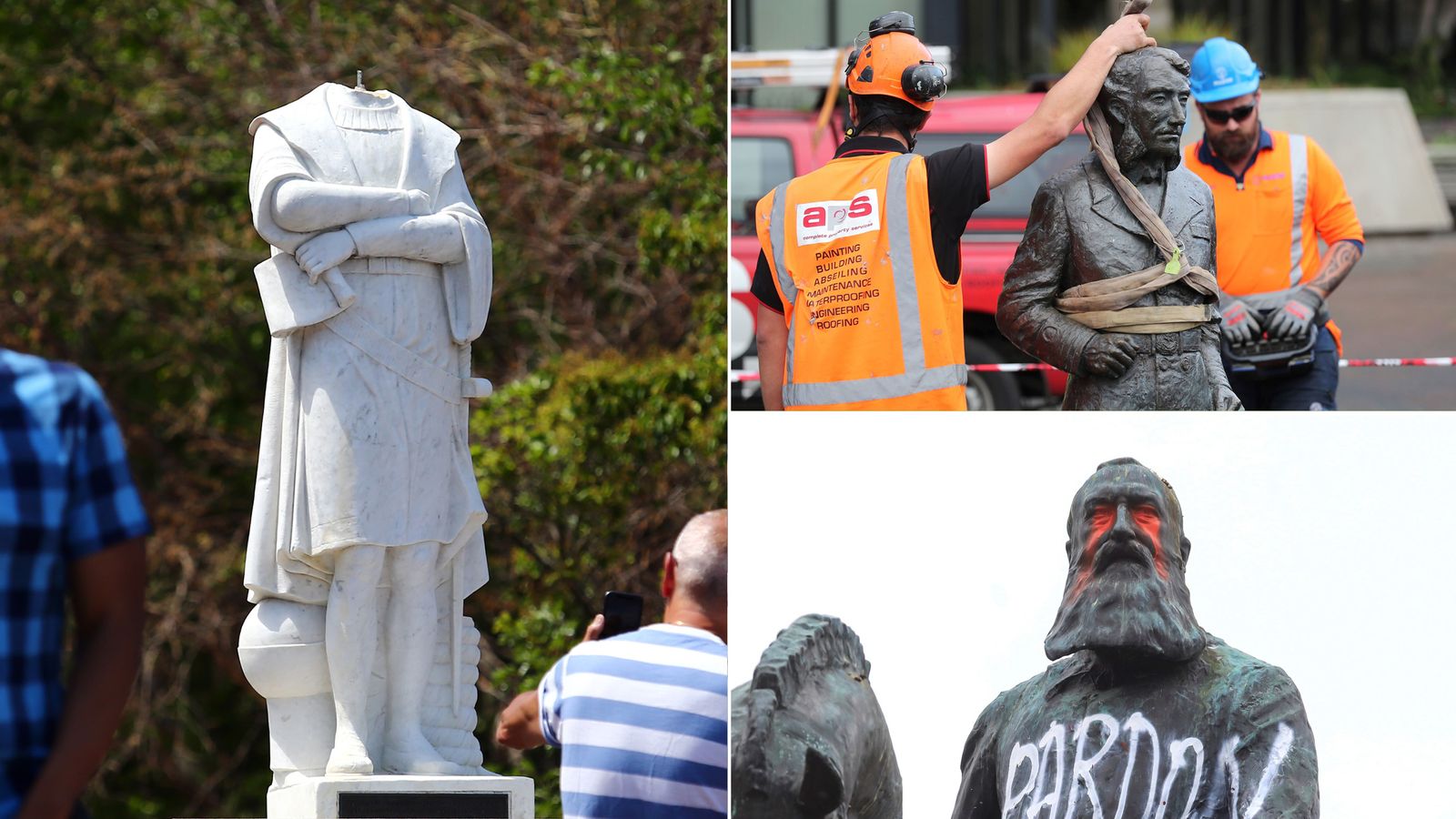Hundreds of people cheered as the bronze figure of Edward Colston was thrown into Bristol Harbour during Black Lives Matter demonstrations last weekend.
New Zealand
While the city was originally called Kirikiriroa by the Maori, it was renamed after Captain John Hamilton - a British officer who was killed in the infamous Gate Pa battle in the city of Tauranga.
Hamilton was a captain during a series of bloody battles between British and Maori forces amid the New Zealand wars of the 1800s.
While historians have suggested he never actually set foot in the city that went on to be named after him, he is accused of killing indigenous Maori people in the 1860s.
Belgium
A longstanding movement in Belgium has demanded monuments celebrating Leopold II be removed from public places.
Statues and busts of the 19th century king have been defaced in half a dozen cities since global protests began in the wake of George Floyd's killing in the US.
Australia
Campaigners in Australia have targeted a number of statues that celebrated colonisers, including those of figures such as Captain James Cook and Lachlan Macquarie.
But perhaps the most widely reviled subject of monuments in the country is Charles Cameron Kingston, a representation of whom features prominently in Adelaide.
Kenya
The East African country, along with others on the continent, was something of a forerunner in the movement to get rid of statues providing a legacy to a colonial past.
In 2015, a statue of Queen Victoria that had sat in Nairobi for more than a century was beheaded and thrown into bush.
This act was considered to be a rejection of a symbol of Britain's rule over Kenya, which began during her reign in 1895, lasting until 1963.
Its removal was celebrated this week, with one resident reportedly saying citizens "do not want to be reminded of slavery, colonialism and the suffering it brought".
In South Africa, repeated attacks at the University of Cape Town on a statue of Cecil Rhodes - seen by many as an architect of apartheid - saw it eventually covered up and moved to a military base in 2015.
And many decades before Belgian activists began attacking monuments to Leopold II, people in Congo took down statues of the man some historians have accused of overseeing genocide in the country.
US
Along with statues of Confederate leaders, others of explorer Christopher Columbus were torn down or effectively destroyed in parts of the US.
In Richmond, Virginia, one was pulled down, set alight and thrown into a lake on Wednesday. And in Boston, a statue of the Italian-born figure was beheaded, while another was toppled in St Paul, Minnesota.
Living from 1451 to 1506, his voyages are credited in history textbooks as being instrumental in the discovery of the New World and eventual European colonisation of the Americas.
https://news.sky.com/story/black-lives-matter-how-statues-of-controversial-colonial-figures-became-targets-across-the-world-12005417

